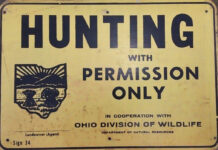“If momma ain’t happy, ain’t nobody happy.” Surely you’ve heard that phrase and get what it means: If the household caregiver isn’t in a good mood, it trickles down to the rest of the family.
At a recent seminar, a management consultant applied that same concept to animal caretakers. When they’re not happy, the herds aren’t happy. When ranchers or feedlot employees are unhappy or feeling stress, how much pride can they take in the job they’re doing?
Call it mammalian empathy or stress-related errors of management, but those bad feelings are contagious across species. And a growing body of research says cattle that never have a bad day do better all the way through to the packinghouse.
Meaning
From an animal’s perspective, what exactly does that mean — never having a bad day? There are variables that no caregiver can completely control, like weather or sickness.
But that doesn’t mean a herdsman is helpless; there is much you can do. Approaches like strategic windbreaks or bedding cattle can make them more comfortable in the winter months. Sprinklers and shade can ease the sweltering summer heat. Vaccinations, good nutrition, minimal stress — these can all aid in keeping critters healthy.
Then there are all those details where the caregiver has much greater control: weaning, feeding, animal handling and so on down the list. Planning ahead and doing everything possible to ease cattle from one transition phase to the next helps.
Consistency is another key. Moving animals in a calm and collected manner (as much as is humanly possible), avoiding “hot shots” and hollering and focusing on the natural tendencies of the animal can make even the most stressful days seem like good times to those cattle.
You care. Those animals are your lifeblood. You’re entrusted with their wellbeing and they’re your profit center. But if you have employees, either family or outside hired help, do they feel the same way? Is that passion coursing through their veins?
Purpose
This management consultant suggested those folks keep their purpose top of mind. They’re not just feeding cows and processing calves. They’re helping to feed the world.
Ask them for suggestions and input — an outside perspective never hurts and they might be happier if you show that you value their opinions. Make sure they know that how well they do their job matters — not only for today, but in the long-run bigger picture. Do they realize that the way calves are handled affects performance, both in the feedlot and on the rail?
Many hurdles to happiness for man and beast can be overcome with more communication, more planning. That may not come naturally to every “get your hands dirty” type of manager, but it’ll be worth it in the end.
End result
Especially if, by keeping those calves happily gaining and grading, you make life better for them, for your family and for millions of consumers.
That’s sure to put a smile on momma’s face, along with all those others.












